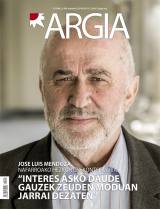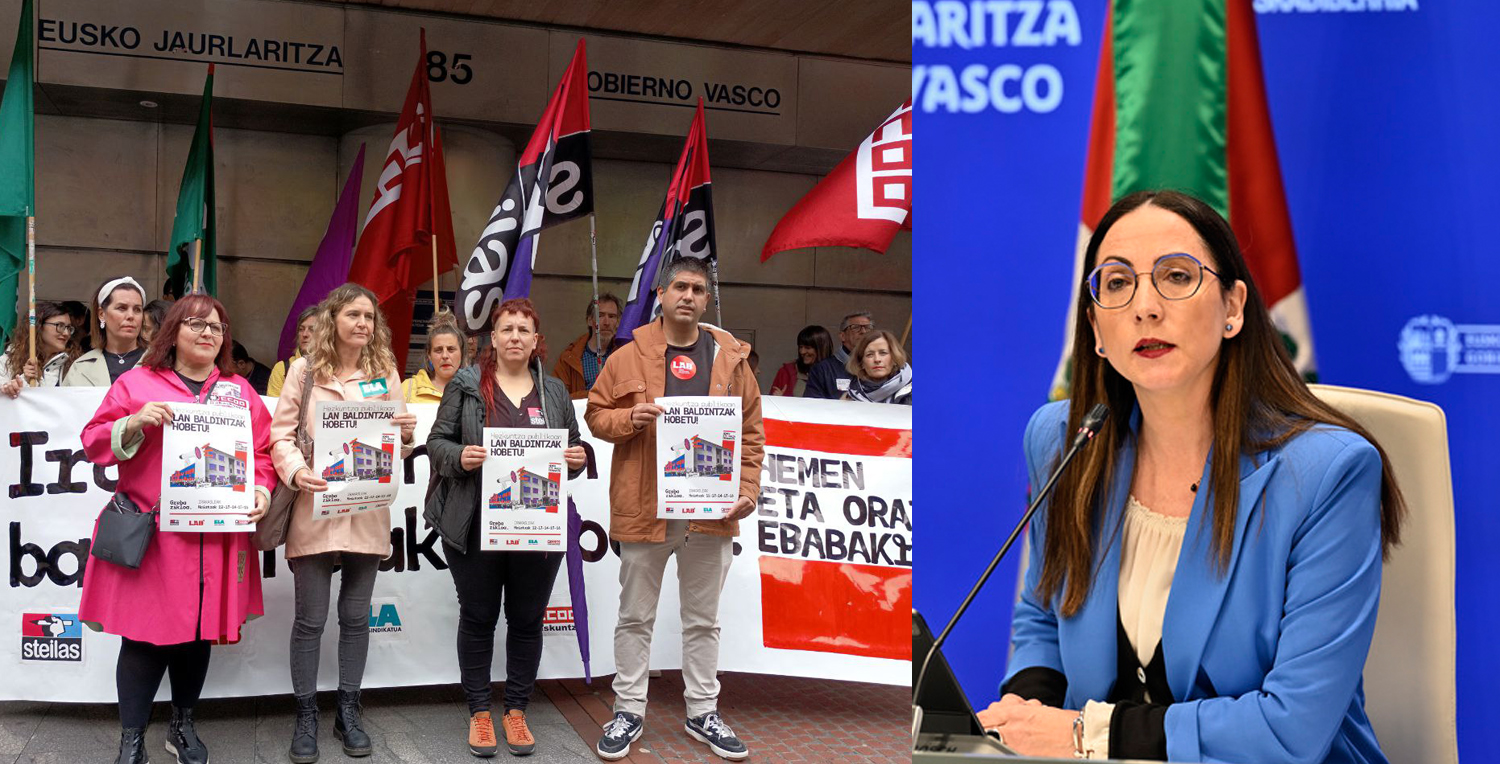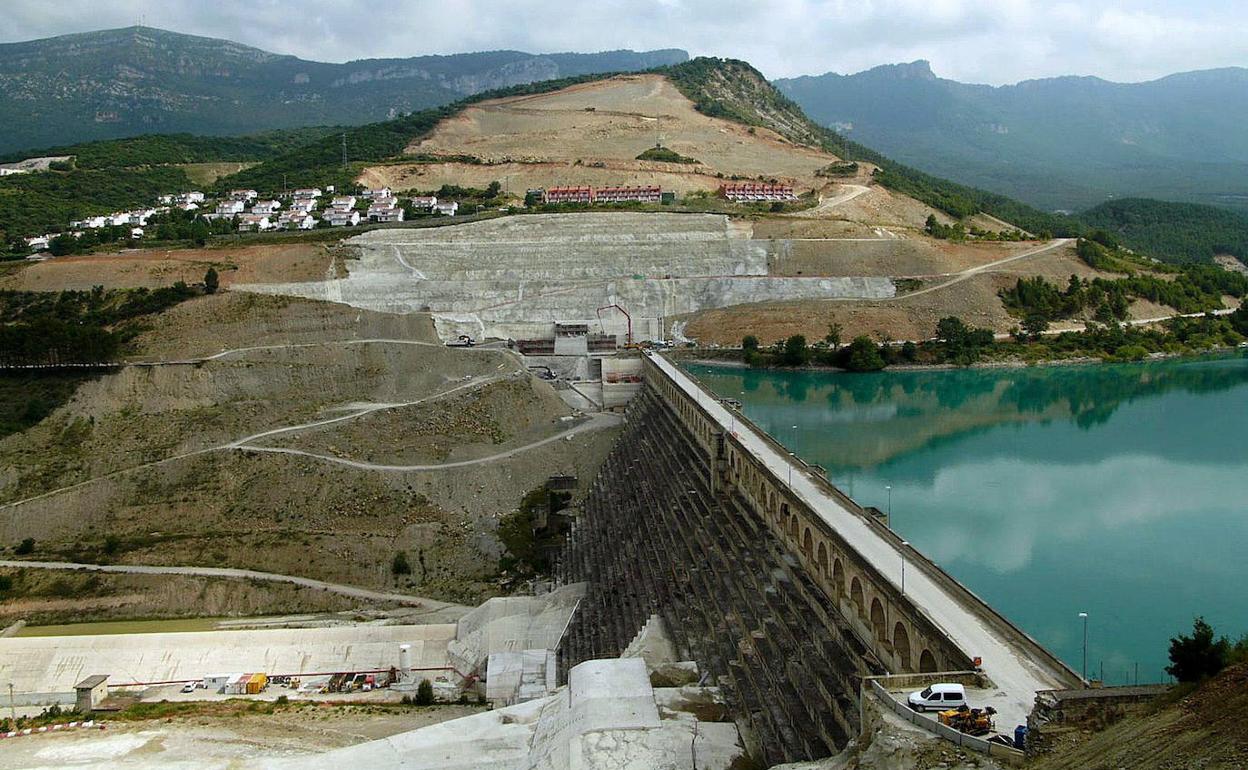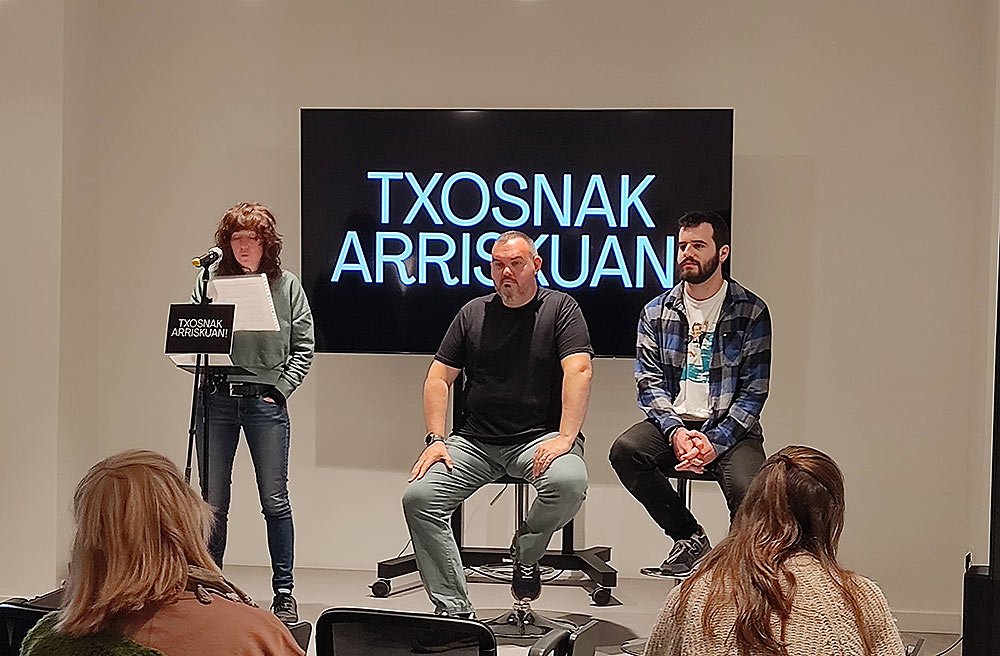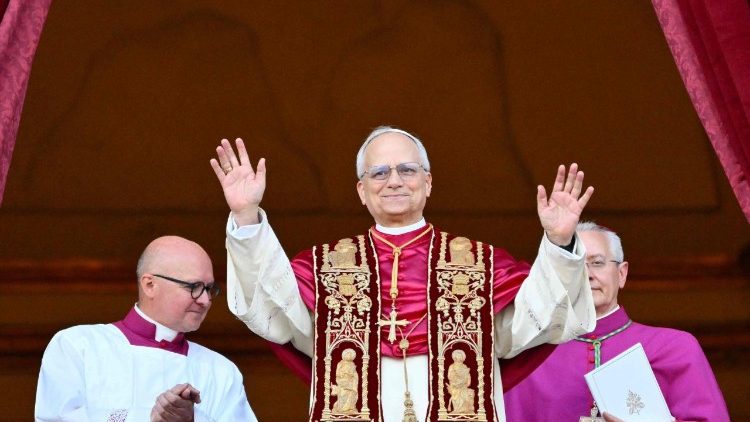"If positive discrimination is not exercised with caution, part of society opposes it"
- The Assembly spokesman is Joseba Eceolaza (Iruñea, 1979) and a member of the Batzarre coalition, Left-Ezkerra (I-E), along with Ezker Batua. One of the four parties supported by the Government of Navarra is I-E, the smallest but decisive, because with its votes the parliamentary balance can lean towards the opposition. In the interview we have addressed the hottest areas of education and Euskera.
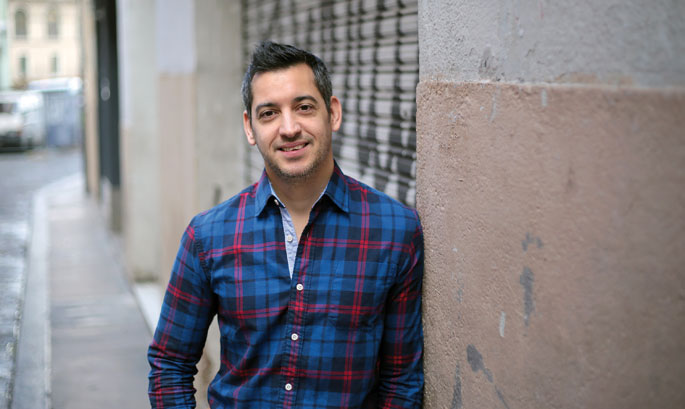
The government has already carried out numerous new initiatives in all areas: tax reform, waiting lists in health, elimination of an Opus convention… But the problems around the Basque country are the most serious, both in terms of society and in terms of those who support the government. Why?
In Navarre there is a great culture of frentism and we knew that this had to happen, with identity, with symbols or with languages. We believe that we have to break this frentism and that is why we say that the greatest benefit we can do to the Basque is to put an end to the noise, because in these noisy debates the Basque and the Basque people lose.
On the other hand, the perception of many Basques is the opposite: if we do not make noise, we think that our rights are not recognised. Would you say the same thing to LGBT, to the feminist movement?
No, I do not mean that our demands do not have to go out into the streets, but that the criticism that is given in Parliament is bad. The right is to blame for this criticism, but the Basques also have ours; for example, in the processes we have had in recent times we have not been able to explain very well what had to be done. For example, the way in which José Luis Mendoza has managed the Public Employment Offer (OPE) has not been good and that has brought problems, both inside and outside the quartet in which we support the government. When positive discrimination occurs, it must be done very carefully, looking at society, because if not, a part of society is against it.
Let us look at what happened with the OPE. In November, the OPE of 425 seats came out. 320 for 2016 (228 in Basque and 92 in Spanish). You against it, it was not balanced. Where did the Department of Education sin?
This cannot be done without informing the trade unions and the parties that support you. Through the press, we knew what to do. The 120 places offered for Early Childhood and Primary Education were in Basque, none in Spanish. This is not correct in the socio-linguistic situation in Navarre. The technical report is not a dogma of faith. The job of I-E is to seek bridging work and consensus. We have to look at Euskera and at the rights and diffusion of Euskaldunes, but it is important that no Navarro welcome it, and for that we need intelligent management.
The arguments of the Department of Education stated that the expansion of the PDI (English Learning Program) means that they outnumber monolingual teachers. So what is the point of getting more places? In addition, the law does not permit the departure of places in English.
Each year there are 400 retirements in the public education network and, therefore, the educational world can easily access the 60 places in Spanish that we demand [of the 120 in Early Childhood and Primary Education]. In addition, there are currently professors who are not teaching English, but who have the C1 degree in English. They can also be recycled.
There may be teachers with C1, but they have not wanted to teach at WFP, as they have included B2 people in the programme.
We too have our technical vision, many people in the House are a professor and say that there would be no problem in taking 60 Spanish seats without generating any surplus. We can also take that view. Finally, the Department of Education had 33 votes against in the Basque Parliament [of 50]. We told Yolanda Barcina that it is not possible to govern against Parliament, and we have to ask the present government for the same.
We have to promote Euskera, but from three ideas: freedom, without imposition and taking into account the socio-linguistic reality. It cannot be forgotten that nowadays in the public network of all of Navarre it is possible to study in model D because I-E proposed this change of law. And it must be remembered that the Abertzale left has shown itself on several occasions against this type of change.
The second important issue around the OPE is that of lists. In this respect, they have not made their position clear, at least publicly.
I recognise that on this issue I find it very complex to have a round opinion, so the nuances are essential. In view of the great confrontation that has taken place with the OPE and in favour of social peace, we agree with the Government’s commitment to keep two lists by 2016. Going into the arguments, some say: “And why should the lists be drawn for languages and not for specialties and that there are 16 lists? The government maintains the two lists and the current formula guarantees the rights of the vasco-speakers, as it will allow them to attend the Basque and Spanish exams.
Why does the Basque have to run two tests? In this case, moreover, Euskaldunes would have more opportunities.
It is often mentioned that in Catalonia, Mallorca and Valencia there is only one list, but our socio-linguistic reality is not that. In Valencia most people know Valencian, and here the Basque does not.
But so far the Basque country has been discriminated against. It was he who had to choose, for example, to present between 30 and 40% of the seats (in Basque), when it could be presented at 100% according to his capacity.
I find the proposal by Podemos interesting to untie the knot: that it be done this year with the two exams and that, at the same time, a broad debate be opened at the School Council of Navarra with all those involved so that it can be decided how to do it by 2017. If that is the case, we will avoid what has happened with the OPE.
And in that debate, what will your position be?
At the moment I do not know, there are too many technical details. However, we must look for a valid model that takes into account our socio-linguistic reality.
Therefore, should the citizens of the Basque and non-Basque areas have different linguistic rights?
On our initiative, now, whoever wants in the non-Basque area will be able to learn Euskera in model D in the public network. That is to guarantee the rights, and not to pretend to install an Basque technician in Tudela or in Ribaforada, when there is no demand for it.
So, do you think zoning is right?
We are opposed to zoning, but we say that the same cannot be said of the Baztan City Hall as of Ribaforada.
The demand for official status calls for all Navarros to have the same linguistic rights. Then, depending on the sociolinguistic reality of each place, each place will have its own development.
Until now, the claim of the Basque world or part of nationalism has not been that; and from those worlds the identity of the Navarros and the Navarre and their socio-linguistic reality have not been well interpreted or respected. Great mistakes have been made. In a town in Sakana, 80% of the unemployed are Castilian speakers, but in all the jobs of that town hall the Basque is required, even for cleaning work. In another town, the agendas given for the municipal plenary are exclusively in Basque. Another example: a City Hall of the Comarca of Pamplona has opened a citizen care office for what has created four jobs and in the four has requested Euskera as a requirement. These are not my models, those positive discriminations are not the most appropriate to help the Basque in Navarre.
It is played with many minority groups in rights with positive discrimination or imbalances when you want to balance something…
I understand that we have a historic debt to the Basque Country, but if we do not do so with caution, an important part of society will not regard the Basque country as a common treasure. We need a lot of pedagogy. Change is worthwhile if it puts an end to frentism. We must not put an end to the claim, but we must put an end to the noise of frentism.
It talks about pedagogy, about selling well to society. In the case of children's schools in Pamplona has it become pedagogical?
So far, only two out of 17 were in Euskera and, in addition, the two were in the Txantrea. Therefore, we agree that 4 of these 17 groups are in Basque and spread in different parts of the city. In the forms, it has not been invented again.
The bustle has also spread to public schools in Sarriguren and Noáin, where many schools have been located. Those in Model D demand that they remain independent, because they deepen the immersion model. Here too you have opposed it.
Local decisions must be taken. If a new centre is to be built in Sarriguren, let it be built. Noain's account is different. In general, coexistence between models must be ensured and reinforced with linguistic immersion. Basque models can have their own agenda – San Blas, Olentzero… – and sometimes also a different patio schedule. However, it is good that the Castilian speakers hear the Basque, so that they see that this is absolutely normal.
It is now proposed to distribute model D in these centres and accusations of segregation are made, but there are many Navarran centres that are only type D, it is not a matter for now and nothing has happened.
Yeah, that's a UPN play. I will give you an example, I live in the Casco Viejo de Pamplona and in the San Francisco school there the two models coexist and when they go out to the plaza they all mix. I like this model.
Yes, but the cloister should work in Spanish, as in the School Council and, in general, even though model D is higher in number, the presence of Spanish is predominant outside the classes. The Basques are an island in the Spanish Sea, which is why we are asking to strengthen these islands, because then society has many places for coexistence.
Yes, but that leads to the ghettization of Castilian speakers in some places, such as Berriozar. My model is San Francisco.
BRN + Neighborhood and Sain Mountain + Odei + Monsieur le crepe and Muxker
What: The harvest party.
When: May 2nd.
In which: In the Bilborock Room.
---------------------------------------------------------
The seeds sown need water, light and time to germinate. Nature has... [+]









